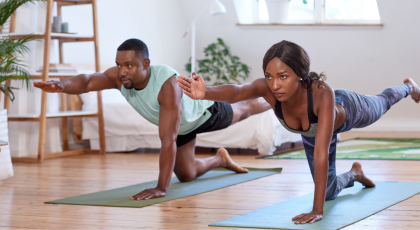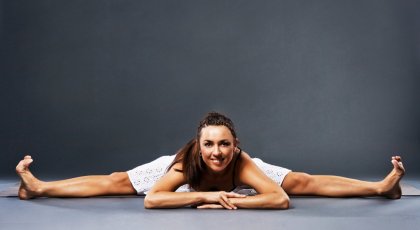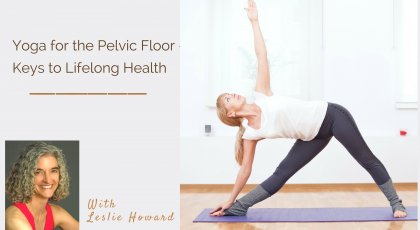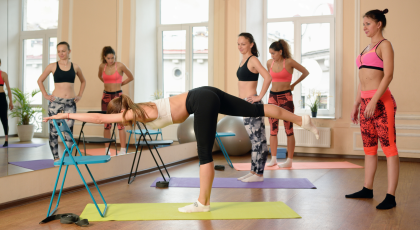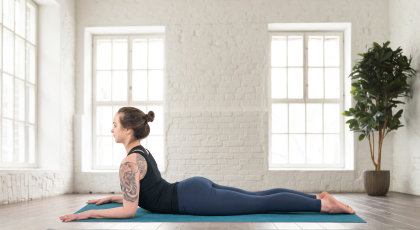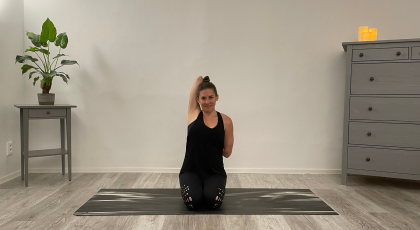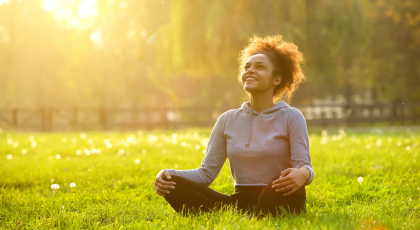View basket (0 items $0.00)
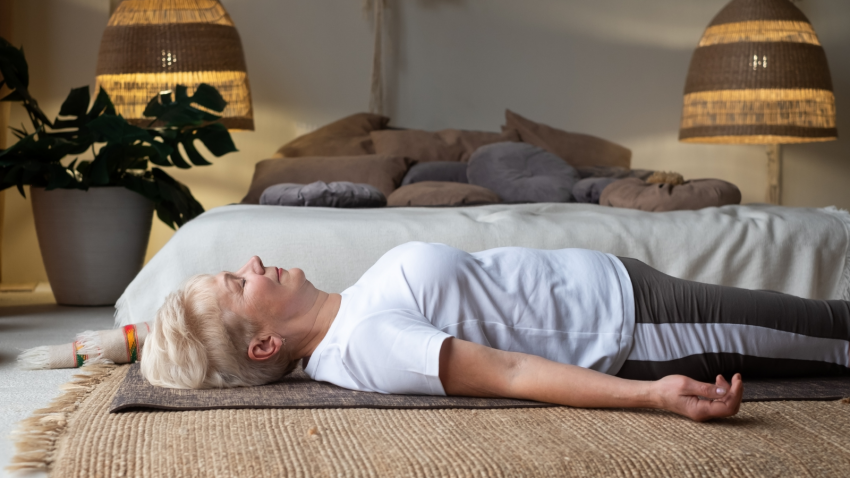
Support Your Neck with a Yoga Eye Pillow
Relaxation Pose is the name we give Savasana (shah-VAH-sah-nah) in English.
In Sanskrit, it means corpse—a pose that mimics death. But if you have a rounded upper back you can easily become one of the undead—not quite able to settle without something to prop up your head.
Sadly, everything in our technological society conspires toward rounding our backs forward. We sit and stare at computer screens. We drive, we hunch over bicycle handles. And even non-tech activities—cooking, caring for a baby, gardening—bend us in the same forward direction.
For some of us, the tendency to a rounded upper back began with the fact that as very young children, we began to imitate the adults around us. For me, it’s both. I work at a computer and come from a long line of women with dowagers’ humps.
Centre the eye pillow on your mat, and your spine on the eye pillow.
Head Support in Yoga’s Savasana
For years my chosen prop in Savasana was a folded blanket under my head. Without it, I might start Relaxation Pose in comfort, but within a few minutes, the back of my head would begin to feel too heavy on the floor. My shoulders would tense, and I’d feel constricted in my upper chest.
My blanket, however, was a double-edged sword. It made my Relaxation Pose more relaxing, yes. But as long as I used the blanket, I wasn’t coming closer to the classic pose. 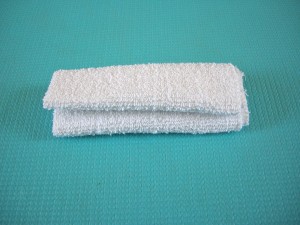
Then, in a recent class, the teacher suggested using a face cloth, folded in quarters and then fan-folded in thirds to make a small, narrow oblong. Placed in the right spot in my upper back, it lifted my rounded spine away from the floor. My collarbones broadened and my shoulders rolled back.
Heaven. And not only that, it was heaven which might conceivably lead to a better pose over time. But as I worked with the face cloth at home, I ran into difficulties. It proved to be a tricky little parcel, apt to come unfolded as I moved into place.
When it was good, it was very, very good, but when it was bad, it was a fidgety mess.
Lately, I’ve started using my eye pillow instead. It’s a little longer than the folded face cloth, and not as high, but when it hits the right spot, I get the same effect. If you don’t have an eye pillow, by all means, try a facecloth.
The face cloth, folded in four and then fan-folded into thirds. (shown above right)
How to Use an Eye Pillow for Head Support
-
Place the eye pillow (or face cloth) on your mat in the center, lengthwise, with the top of the prop where you expect to place the bottom of your neck.
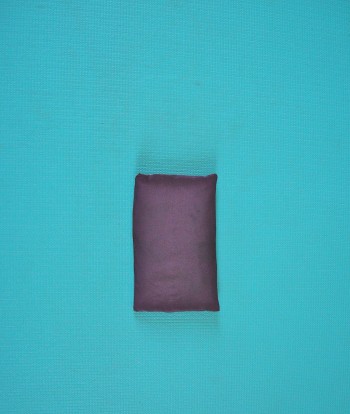
-
Lie down. Make sure that your spine is centered on the prop. (Centre the eye pillow on your mat, and your spine on the eye pillow.)
-
With your knees bent, push yourself along the eye pillow until you feel your shoulders broaden and your neck lengthen.
-
Keep your weight on the prop as you move: part of what makes this work is the way your skin is pulled downward as you slide.
-
Take your arms out to the sides. Lengthen your buttocks toward your heels. Then one by one lengthen your legs.
-
You may not get to the right spot on your first try. If, a few minutes into your rest pose, you start to feel a familiar strain, then bend your knees and slide an inch or so toward your head.
You’ll know you’re in the right place when your collarbones roll toward the floor, and the back of your neck lengthens. If your shoulders are very tight, or your upper back is very rounded, the eye pillow may not be enough to keep you comfortable. Have a folded blanket nearby for the back of your head.
Rest easy.
Reprinted with permission from Eve Johnson/My 5-Minute Yoga Practice.com
Eve Johnson taught Iyengar Yoga for 18 years before being introduced to Spinefulness in 2016. Convinced by the logic, clarity, and effectiveness of Spinefulness alignment, she took the teacher training course and certified in July 2018. Eve teaches both Spinefulness and Spineful Yoga at Prodigy Movement, in Vancouver. For class information, go to http://spinefulness.ca.
Featured Courses
